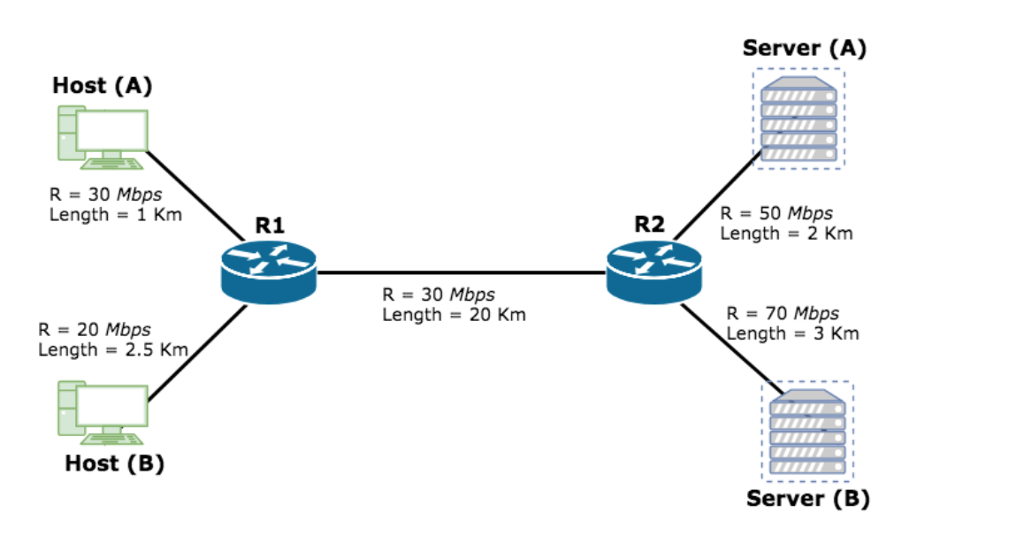Question
Consider the following network setup, where the Length represents the link distance and R represents the transmission rates. Suppose that the packet length is L

Consider the following network setup, where the Length represents the link distance and R represents the transmission rates. Suppose that the packet length is L = 12000 bits
(a) What is the transmission delay from R2 to Server A (the time needed to transmit all of a packets bits into the link)?
(b) What is the maximum number of packets per second that can be transmitted by the link from R2 to Server A?
(c)Find the end-to-end delay (including the transmission delays and propagation delays on each of the three links, but ignoring queuing delays and processing delays) from when the host A begins transmitting the first bit of a packet to the time when the last bit of that packet is received at server A. The speed of light propagation delay on each link is 3x108 m/sec. Note that the transmission rates are in Mbps and the link distances are in Km. Give your answer in milliseconds.
(d) Repeat the same question in (c), but now consider that host B is transmitting to Server B at the same time. Would there be any changes in the end-to-end delay?
(e) What is the maximum achievable end-end throughput (in Mbps) for each client-to-server pairs, assuming that the middle link is fair-shared?
(f) Which link is the bottleneck link for each session?
Server (A) Host (A) R 30 Mbps Length 1 Km R 50 Mbps R1 R2Length 2 Km R 30 Mbps Length- 20 Km R 70 Mbps Length 3 Km R 20 Mbps Length2.5 Km Host (B) Server (B)Step by Step Solution
There are 3 Steps involved in it
Step: 1

Get Instant Access to Expert-Tailored Solutions
See step-by-step solutions with expert insights and AI powered tools for academic success
Step: 2

Step: 3

Ace Your Homework with AI
Get the answers you need in no time with our AI-driven, step-by-step assistance
Get Started


